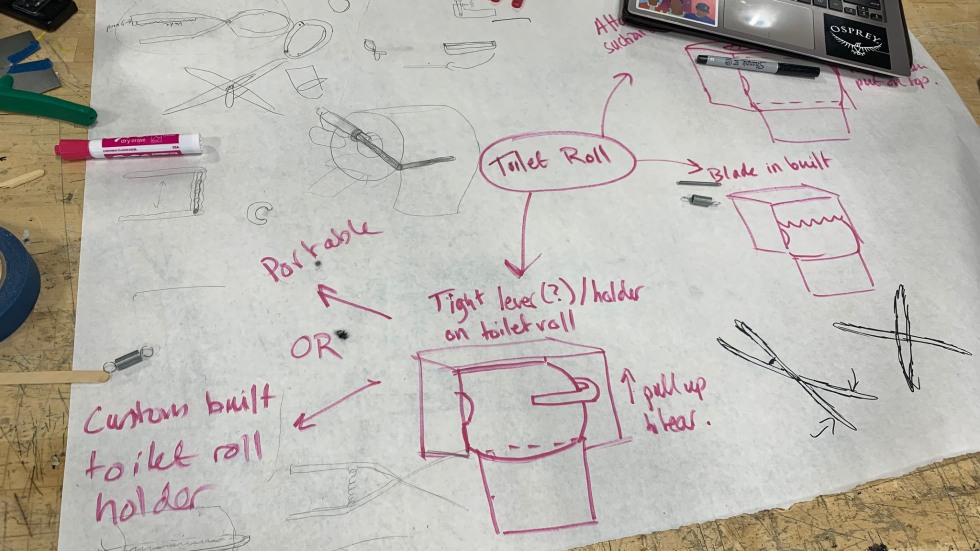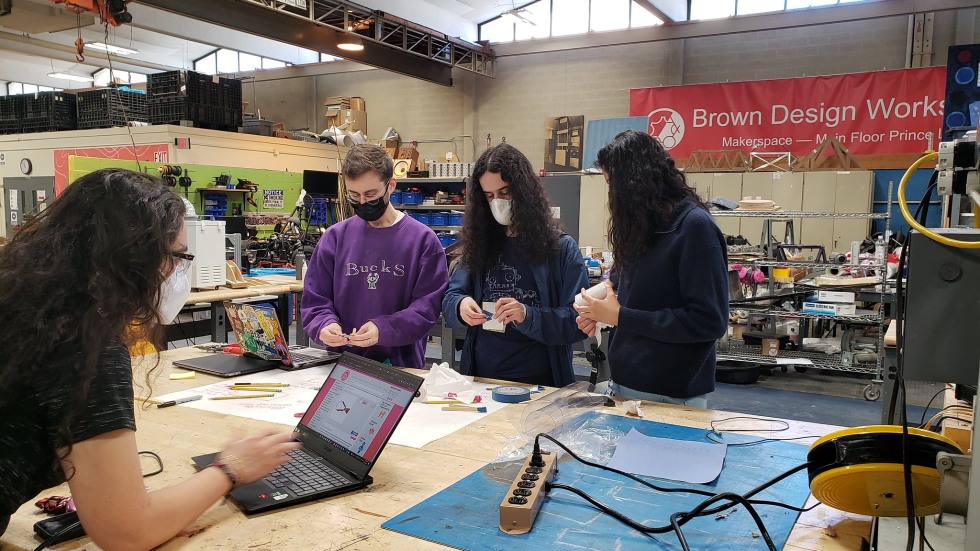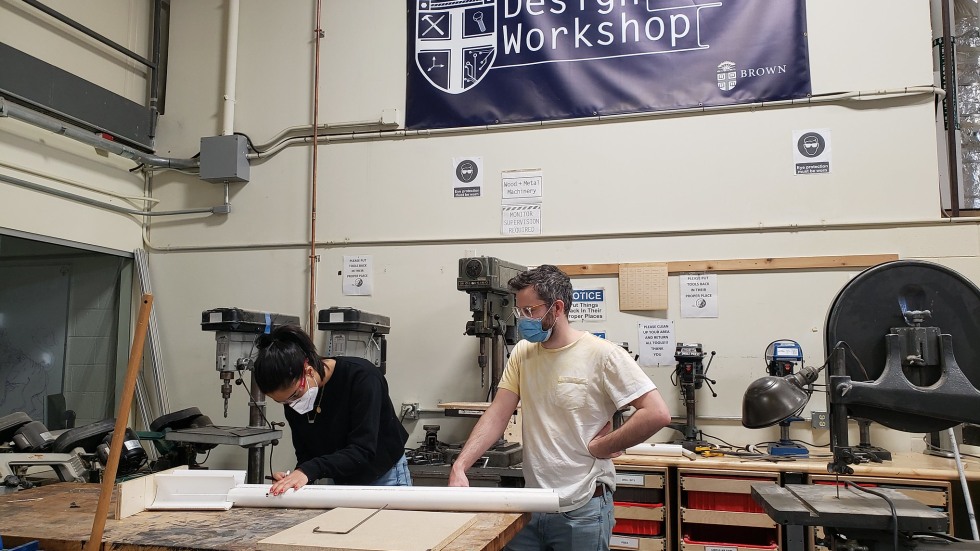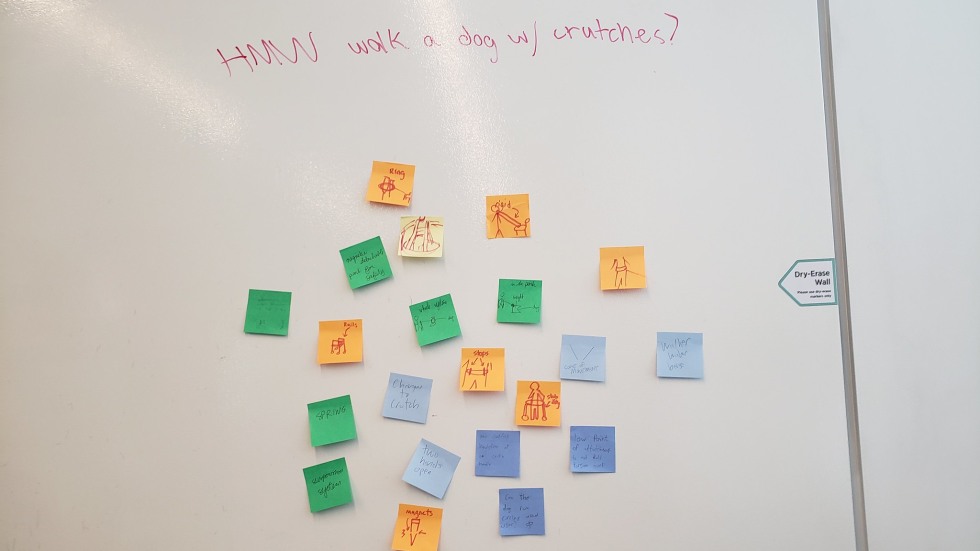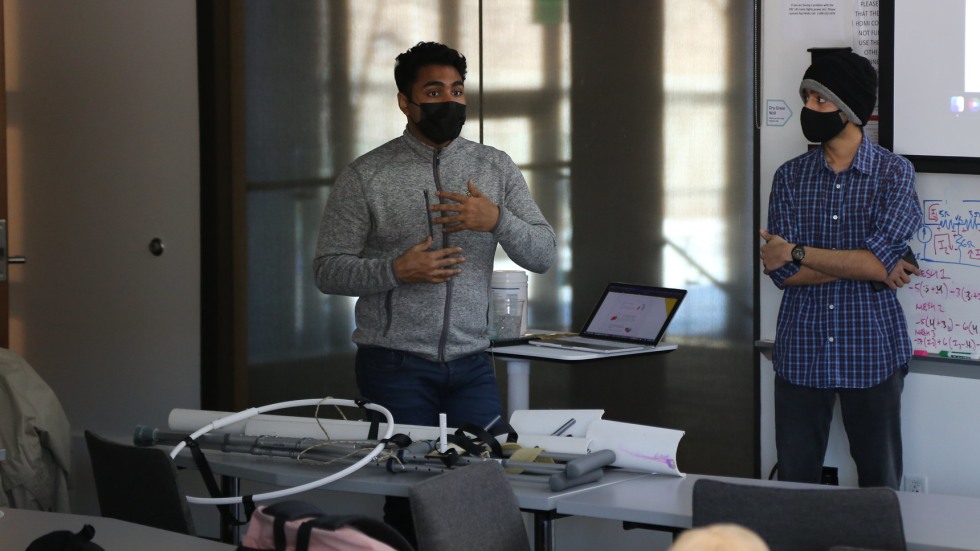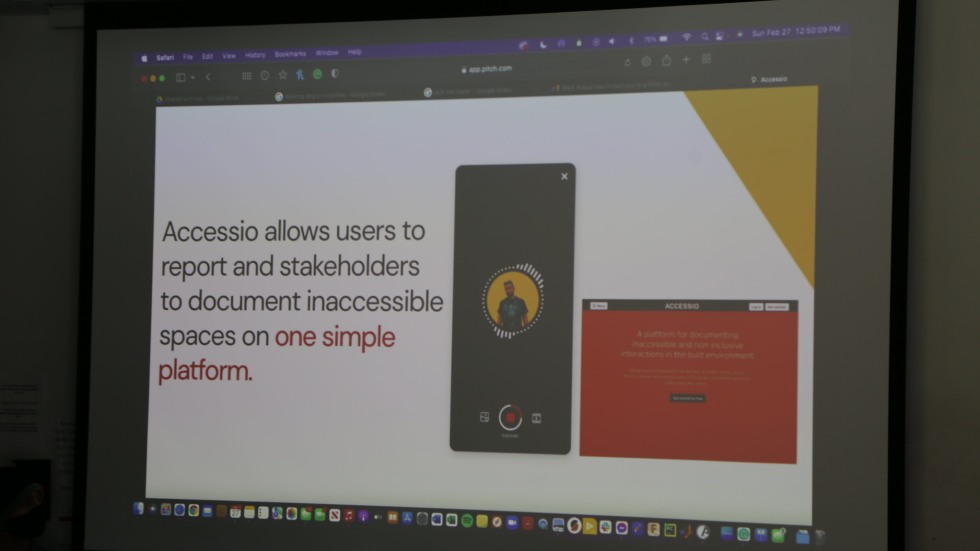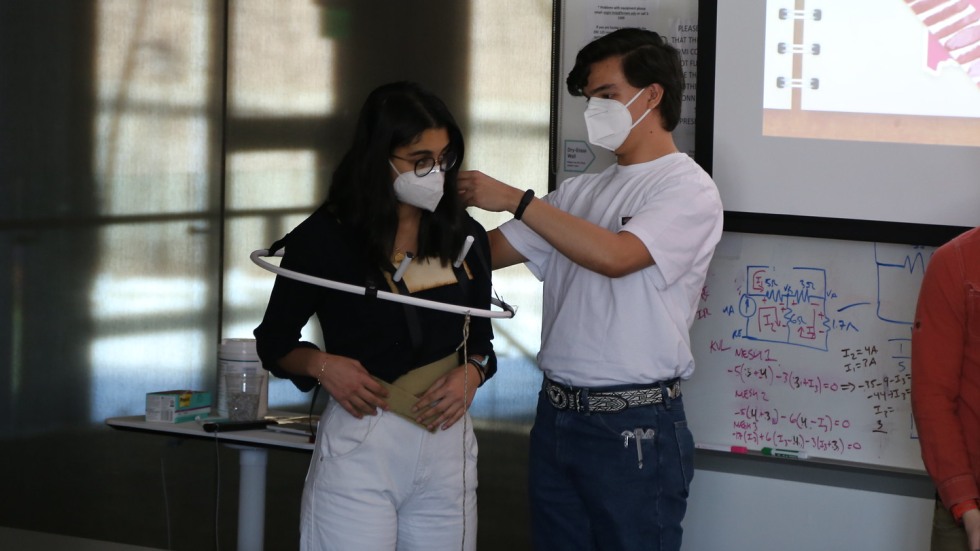On a weekend in late February, a group of undergraduates, engineering graduate students and community members came together in the Brown Design Workshop (BDW) for an Assistive Tech Makeathon, sponsored by the BDW with assistance from Brown Humanitarian Tech, Tikkun Olam Makers, and Makers Making Change.
The makeathon was the brainstorm of Frances Imarhia ’22 and Benjamin Phelps ’22, both engineering concentrators who are members of H-Tech, an engineering-based club led by Brown undergraduates whose goal is to design, create and build for people in need. H-Tech was in need of a new project. Imarhia, a biomedical engineer, and Phelps, who will earn his A.B. in engineering with a mechanical and projects-based focus, are both monitors in the BDW.
Simultaneously, Maddie Jacks, a Brown-RISD Master of Arts in Design Engineering graduate student who serves as the education representative of her cohort, had been reaching out to Tikkun Olam Makers and investigating the possibility of developing a community on campus.
The threesome joined forces to offer an Assistive Tech makeathon that would run from Friday evening until Sunday afternoon. “STEAM used to do one, but hadn’t in a few years, and there were no plans to have one,” said Phelps, referencing the Brown-RISD student-led effort to ignite interaction between STEM and the Arts. Phelps used his contacts with Makers Making Change, a local maker community focused on economic and social inclusiveness for all people with disabilities, for a list of project ideas.
As the makeathon progressed, project themes addressed such topics as mobility, inclusivity, and fine motor control issues. Raul Ayala and Lina Halim, both undergraduates leaning toward engineering concentrations, joined with professional engineers Michael Acton and David James to investigate a hands-free dog walking system, specifically for humans using crutches.
MADE students Mark Aruajo and Raghav Rmadya connected with RISD’s Arvind Bhallamudi to begin building a software platform for reporting problems and documenting inaccessible spaces in built environments. The idea behind “Accessio” is to go beyond the bare minimum of the Americans with Disabilities Act (ADA) in a diverse and complex world, so that preventative measures can be taken before problems arise.
A toilet paper dispenser empowering independence for someone with low fine motor skills was presented by MADE’s Seth Eiseman, undergraduate Sarosh Nadeem ’24 and Braingate research engineer Rekha Crawford. “Jack the Ripper” is portable and has a sharp edge for one-handed operation.
“We were very pleased with the projects,” Imarhia said to the group at the conclusion of the presentations on Sunday. “And recognize that this is where Brown students thrive - creating and making things that will help others.”
